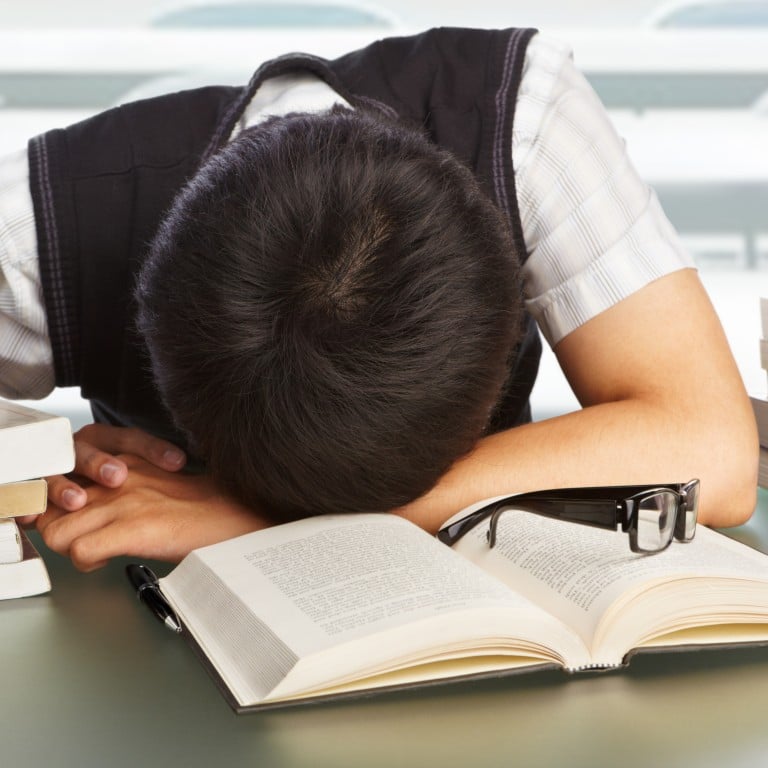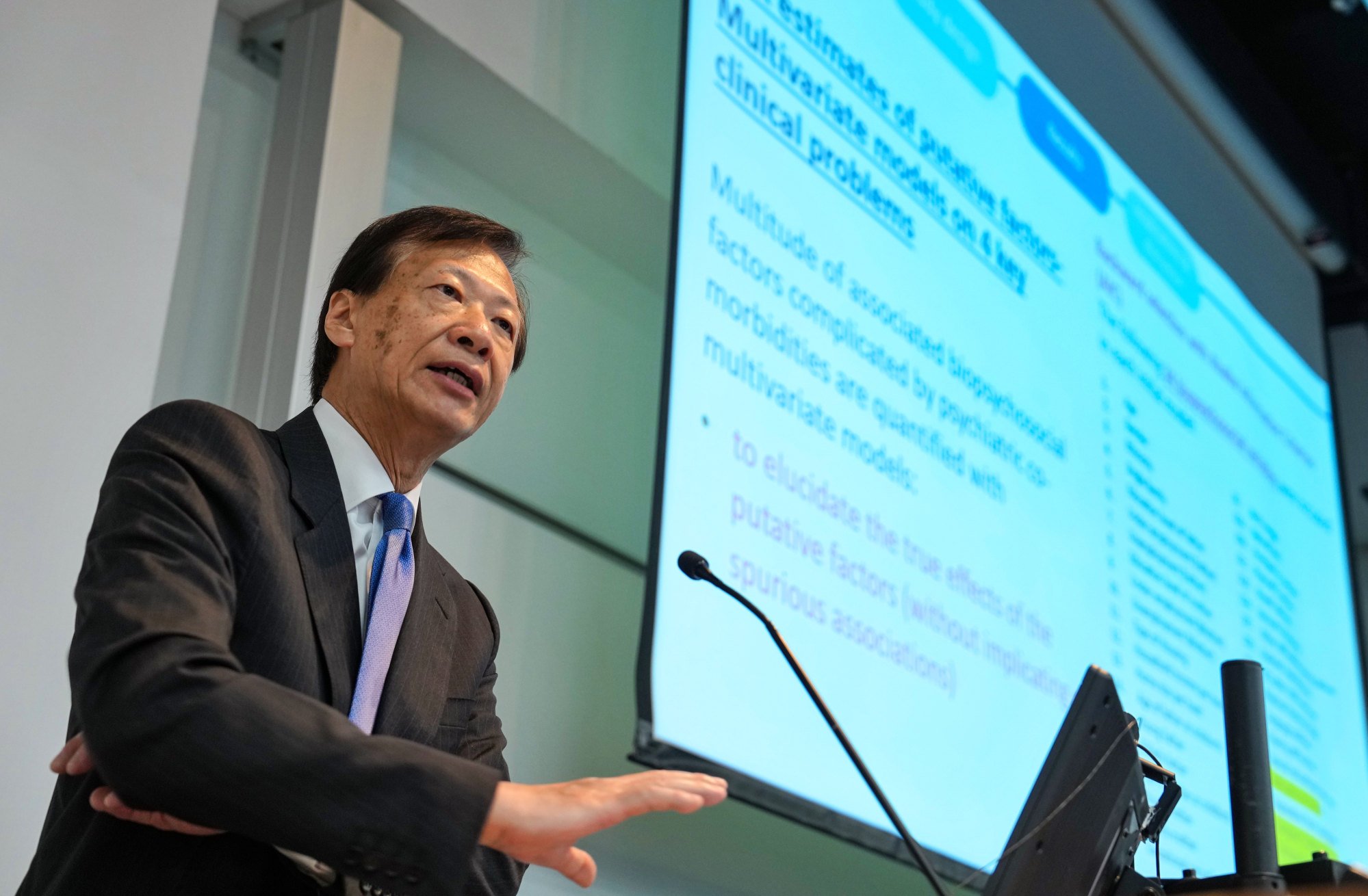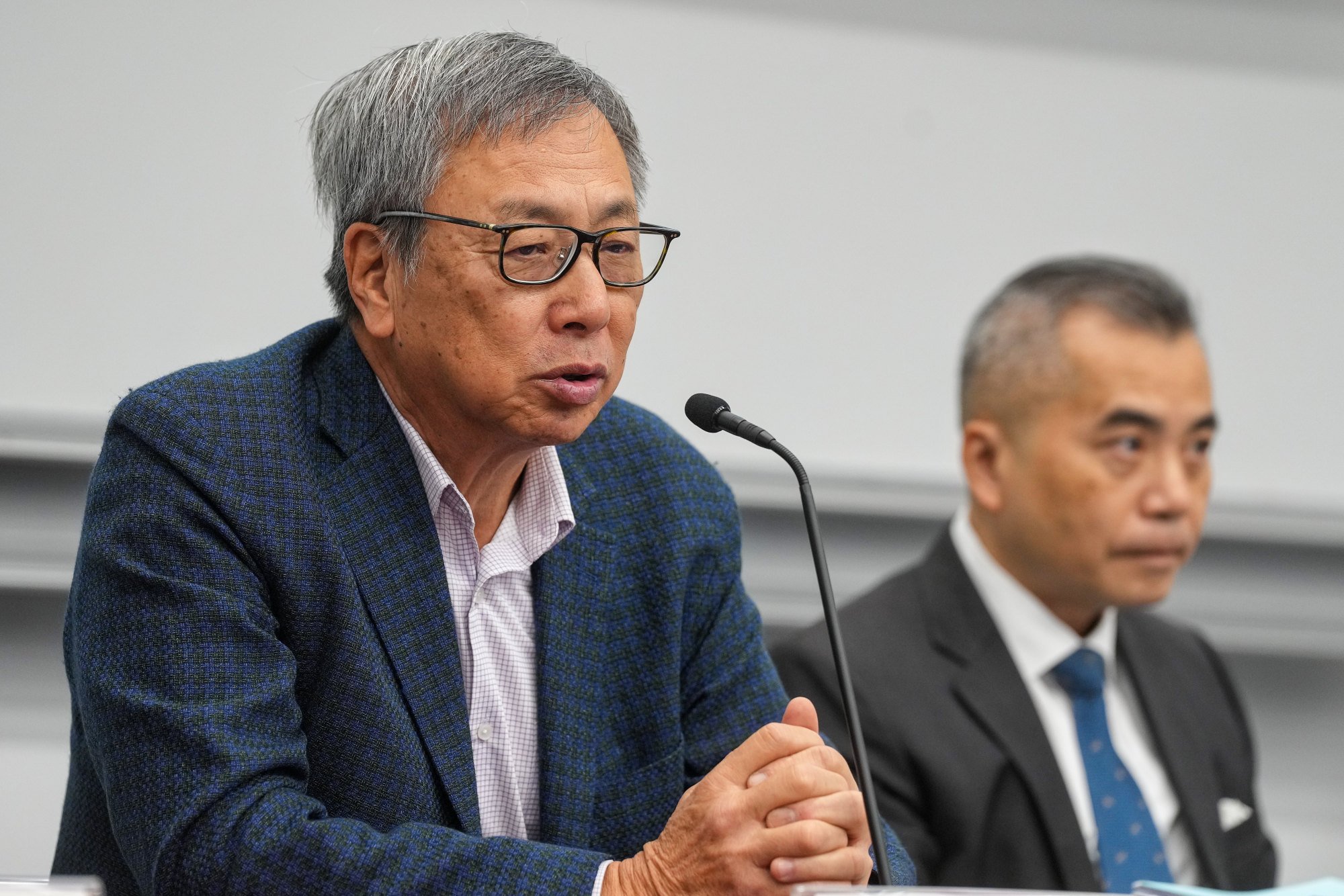
Nearly 1 in 4 Hong Kong children, adolescents had mental disorder in past year, 8% of secondary school pupils thought of suicide, study finds
- Chinese University study finds 24.4 per cent of children and adolescents aged six to 17 had experienced at least one mental health issue in the past year
- ‘We are worried. Compared to the global trend, we are on the higher end,’ academic says
Nearly one in four Hong Kong children and adolescents suffered from at least one mental disorder in the past year and more than 8 per cent of secondary school students had thought about suicide, a citywide study has found.
The Chinese University of Hong Kong (CUHK) on Wednesday revealed the results of a government-commissioned study which found that 24.4 per cent of children and adolescents aged six to 17 had experienced at least one mental health issue in the past year, with half of them suffering two or more co-occurring illnesses.
Hong Kong suicide prevention group launches hotline for troubled teens
“We are worried. Compared to the global trend, we are on the higher end,” Professor Sandra Chan Sau-man of the university’s department of psychiatry said.
“But it is not surprising because Hong Kong is densely populated. We have a very complex and highly stressful society for kids.”

The researchers interviewed 6,082 children and adolescents including non-ethnic Chinese pupils, as well as their parents, between 2019 and 2023.
For primary school students, researchers mainly conducted one-on-one assessments with their parents and a short survey with the children. Individual interviews were arranged for both secondary school pupils and their parents. Around 2½ to 3½ hours were spent on each case.
‘Reduce Hong Kong teachers’ workload to support pupils’ mental health’
They found that 3.9 per cent, 1.9 per cent and 1.1 per cent of all respondents had a suicide ideation, plan or attempt respectively. Among secondary school students, 8.4 per cent, 3.8 per cent and 2.3 per cent had the respective experience.
One in 10 respondents also had clinically significant sleep issues.
Some 10.2 per cent of participants had attention deficit hyperactivity disorder – the most common clinical issue. Disruptive impulse control and conduct disorders affected 8.8 per cent, 6.1 per cent had anxiety disorders and 5.4 per cent had depressive disorders.
But nearly half of carers were unwilling to seek professional help despite observing mental problems in their children, with reasons including underestimating the severity of the issue, fear of stigma and a lack of knowledge on how to seek assistance.
Following the survey, around 500 referrals were made for respondents who were found to have mental health issues.
Hong Kong schools to get HK$80,000 to boost mental health in classrooms
Professor Patrick Leung Wing-leung of the university’s psychology department said the research team had identified the most significant factors affecting respondents’ mental health as parental emotional distress, school-related problems and clinically significant sleep issues.
“If parents themselves also have emotional distress, it will get in the way in terms of playing the role as parents and nurturing the development of children and adolescents,” he said.
“When our expectations on the child’s academic performance exceed their ability, the child may be very worried about not being able to live up to the demands of society and parents, which may lead to anxiety, as well as depression when they actually failed.”
He added: “In terms of sleep problems, many local studies have shown that this is an early sign of mental health problems. There are in fact treatments, which can help reduce the chance that the mental health issues will linger later in life.”
Dr Hung Se-fong, an honorary clinical professor in the department, said suicide among students was just “the tip of the iceberg” and there were “many layers” of problems that came from stress, interpersonal relationships and family.

“We should not simply look at the tip of the problem. This report tells us that our children and adolescents have been facing more problems,” he said.
“We should put more effort into addressing the problems underneath, in terms of educational support, family support, youth services.”
Hong Kong logs 22 teenage suicide attempts or deaths in 3 months, double 2022 figure
Wong Yan-lung, chairman of the city’s Advisory Committee on Mental Health, urged schools to give students space and prioritise their mental health.
“Schools should put less importance on other things such as study progress … In cases of special needs, schools should give space to teachers and students,” he said.
“We must take care of teachers’ mental health … It is important to provide adequate resources to empower teachers to protect students’ mental health on the front line.”

Professor Paul Yip Siu-fai, founding director of the Centre for Suicide Research and Prevention at the University of Hong Kong, said the proportion of children and adolescents with mental disorders in the city was similar to rates overseas after the pandemic, but added the figure was concerning.
“It is impossible to deal with all the children and adolescents with mental disorders with our medical system as we do not have the manpower,” he said.
“That is why we said we should not medicalise mental health problems and further lead to labelling.
“We should provide more resources to teachers and schools and allow students and teachers to build closer relationships, as well as nurturing students’ resilience.”
CUHK, meanwhile, also released the results of another government-commissioned survey conducted with 4,368 and 503 people aged over 60 living at home and in residential care facilities respectively between 2019 and 2023.
They discovered that around 70 per cent of elderly residents living in care homes suffered from dementia.
Hong Kong’s ‘hidden elderly’: could string of tragedies have been prevented?
About one-fifth of respondents living at home were found to have mild neurocognitive disorder and 7.4 per cent had a major neurocognitive disorder.
Among those living at home, 8.6 per cent had depression or anxiety disorder, or both, with being female, a low education level, chronic illnesses, and limited physical and social activities as risk factors.
Researchers also interviewed 488 carers and found that fewer than half had received community services and generally did not appreciate their own efforts.

